Every parent wants to raise a confident, successful child. But even with the best intentions, some habits and phrases can quietly damage a child’s emotional development, setting them up for future struggles. These aren’t loud, obvious mistakes—they’re subtle, repeated behaviors that slowly shape how a child sees the world… and themselves.
Let’s explore 15 powerful examples of how parents may unknowingly sabotage their children’s future.
1. Overemphasizing Beauty, Especially for Girls

“You’re so pretty!” While that might sound sweet, always focusing on a girl’s looks teaches her that appearance is her most important trait. Over time, she may obsess over tiny flaws and neglect deeper strengths like intelligence, creativity, or character. A girl praised only for her beauty might grow up thinking her value fades with her looks.
Video: 11 Parenting Mistakes That Ruin a Child’s Growth
2. Confusing Physical Care with Emotional Presence
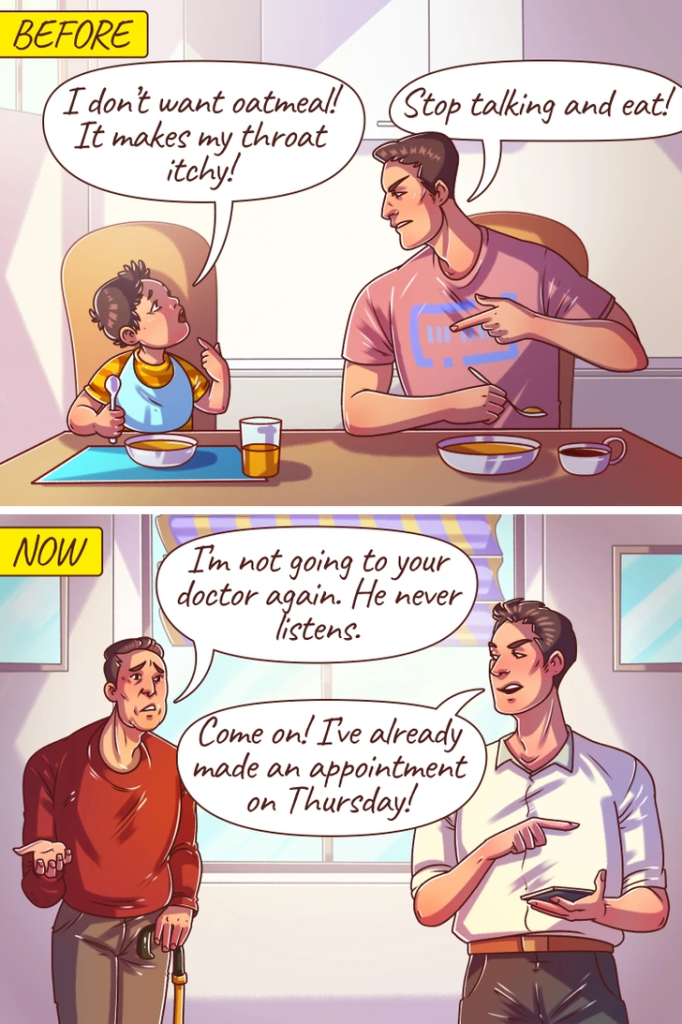
Some parents believe that feeding, clothing, and educating their kids makes them great parents. But kids need more than that—they need emotional connection. When parents stay distant or cold, their children might feel obligated to support them later in life but struggle to offer love or closeness. Material things can’t replace warmth.
3. Withholding Emotional Support While Expecting It Later
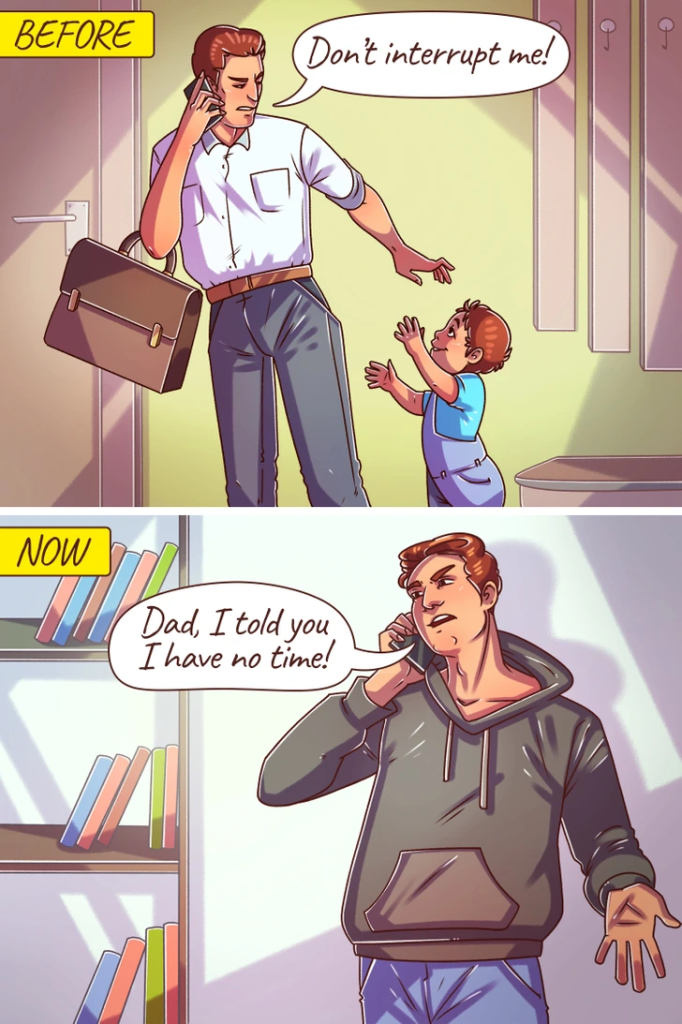
Parents who didn’t show love and attention when their kids were young sometimes expect affection and loyalty in return as they age. But emotional connection is a two-way street. If children felt emotionally abandoned growing up, they’re less likely to give back the care their parents never offered.
4. Invalidating or Shaming Feelings
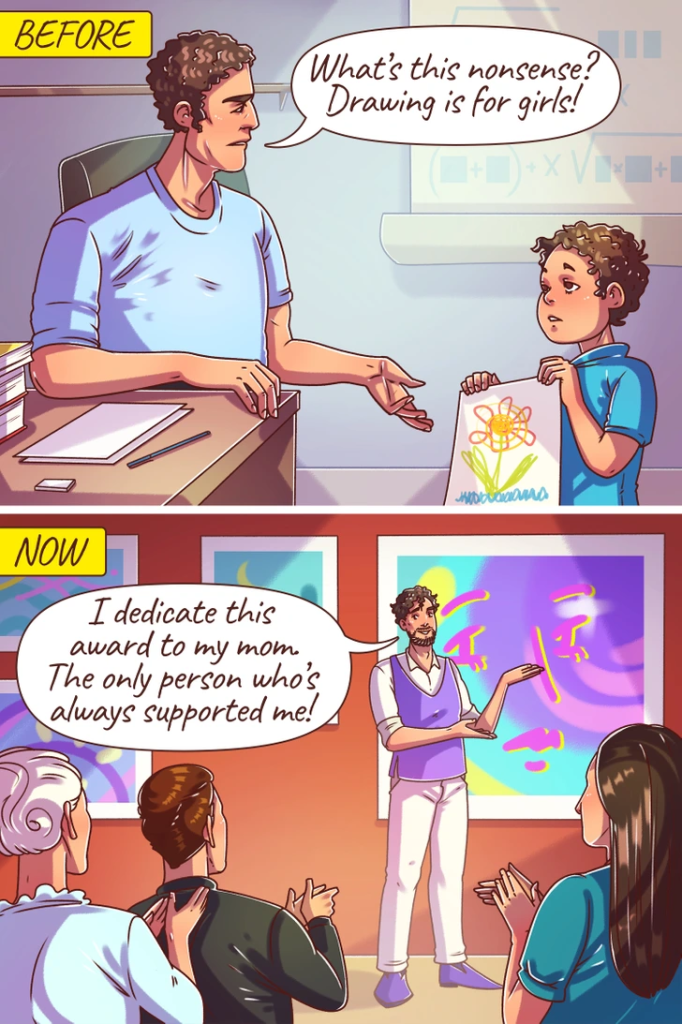
“Boys don’t cry.” “Stop crying, people are watching.” These phrases don’t teach emotional strength—they teach shame. Kids learn to suppress feelings instead of understanding them. In adulthood, they may struggle with relationships, communication, and emotional regulation. A child should know it’s okay to feel—and cry.
5. Playing Favorites Among Siblings
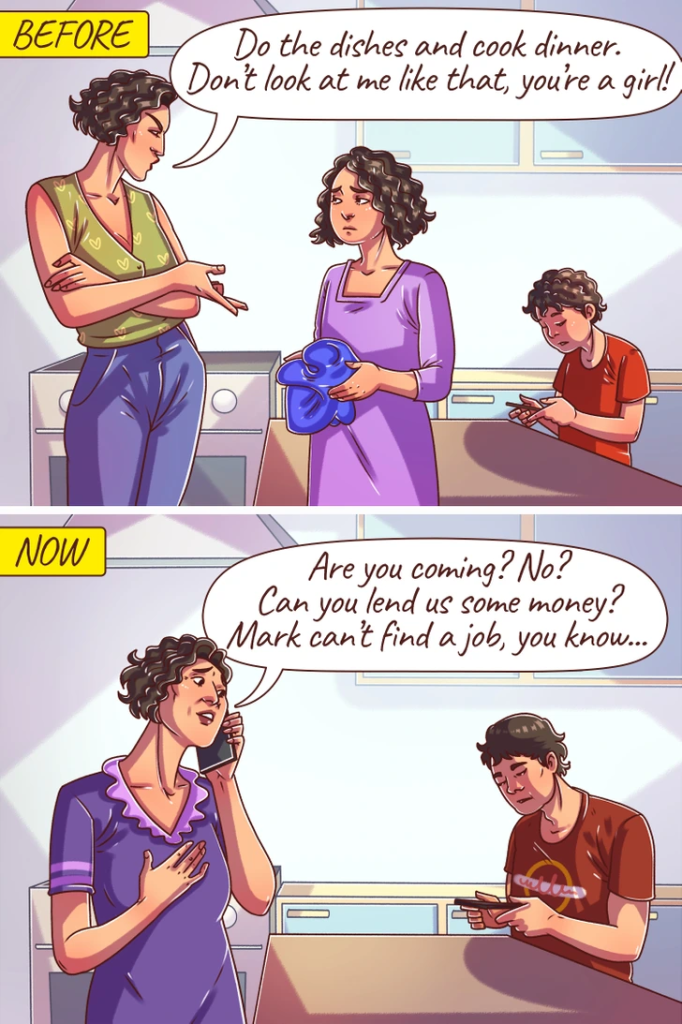
Favoring one child—whether intentionally or not—can create lasting conflict. Maybe the older sibling is expected to behave like a third parent while the younger one gets away with everything. This dynamic can damage sibling relationships and make one child feel constantly overlooked or burdened.
6. Obsessing Over What Others Think
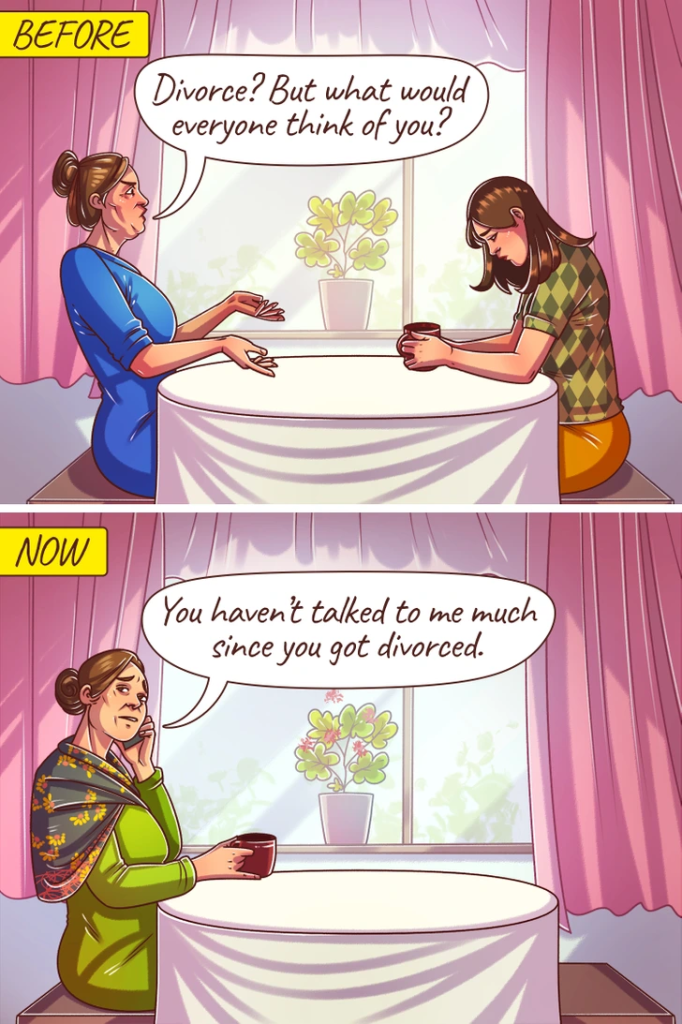
“What will people say?” This phrase teaches children that image matters more than feelings. Parents who care more about appearances than their child’s emotional well-being often raise kids who hide their true selves. Instead of honesty, they learn to perform for approval—and resent it later.
7. Using Criticism as a Coping Mechanism
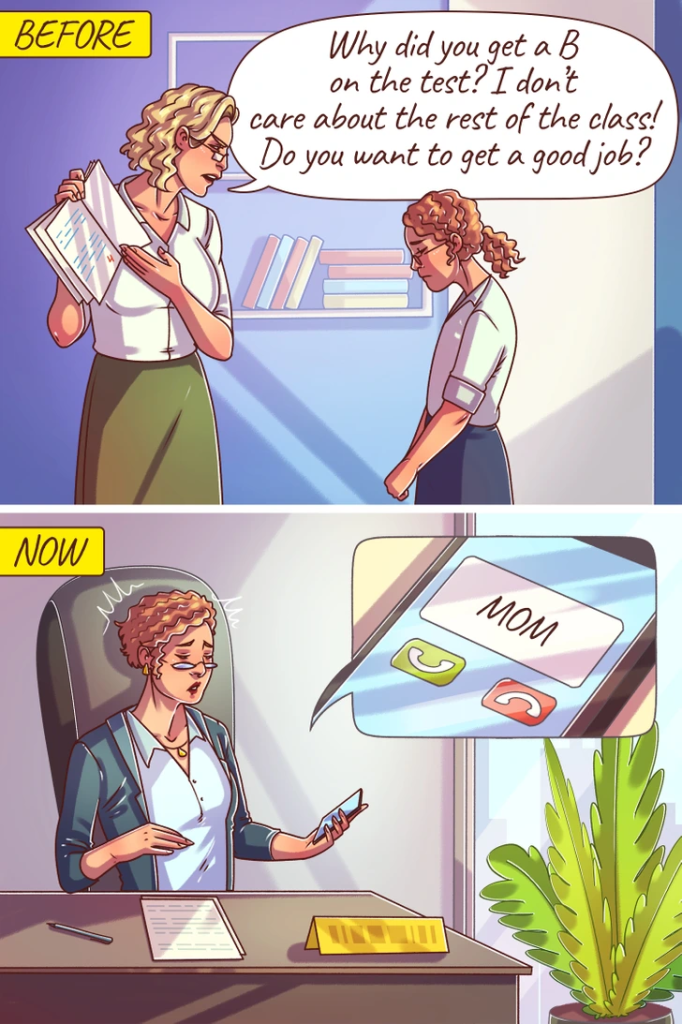
Some parents lash out at their kids when they’re frustrated or tired, turning everyday interactions into moments of harsh judgment. This constant criticism leaves kids feeling like they can never do anything right. Over time, it erodes self-esteem and drives emotional distance between parent and child.
8. Turning Children into Reflections of Themselves
Video: This eye-opening video explores how certain parenting missteps—often made in the rush to “fix” a child—can have deep and lasting emotional effects over time
Narcissistic parents often tie their self-worth to their child’s success. They closely monitor grades, sports, and behavior—not to support their child’s growth, but to boost their own image. These children grow up feeling they’re never enough. Eventually, they may distance themselves just to breathe.
9. Pressuring Them Into Traditional Milestones

Some parents constantly push their kids to get married, have children, or follow a set life path. While these conversations might come from love, they can feel suffocating. Kids start avoiding contact, not because they don’t care—but because they feel they’ll never meet their parents’ expectations.
10. Breaking a Child’s Trust Over Secrets
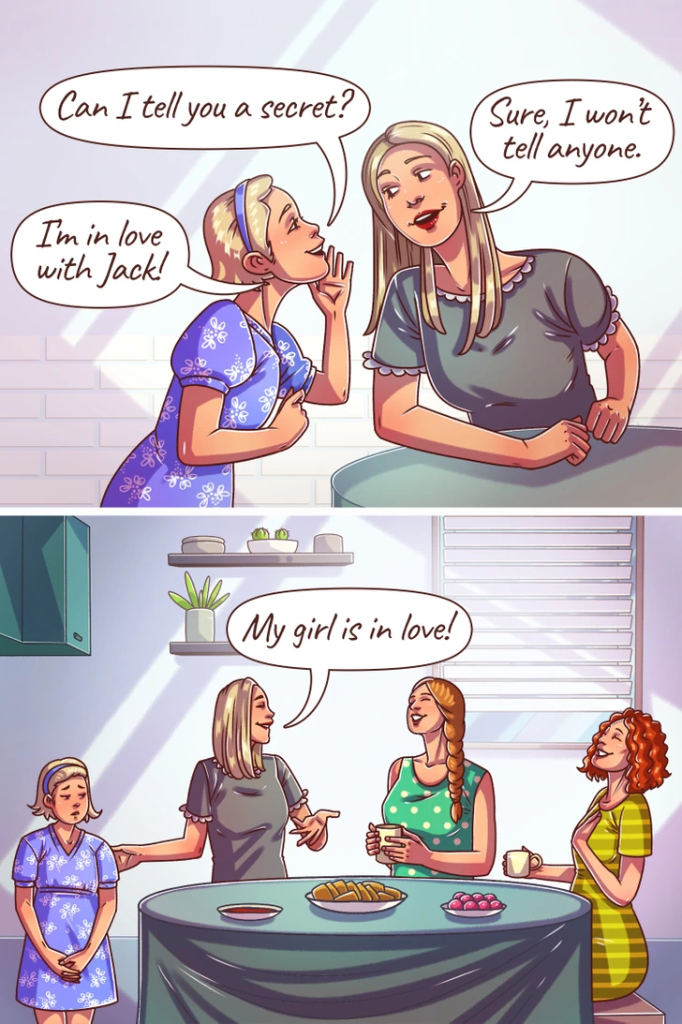
When a child confides in a parent, it’s a big deal. Laughing it off or sharing that secret with others can destroy trust. Once that bond is broken, kids may stop opening up altogether. Parents who dismiss or betray their child’s vulnerability can unintentionally silence them for years.
11. Controlling Every Decision
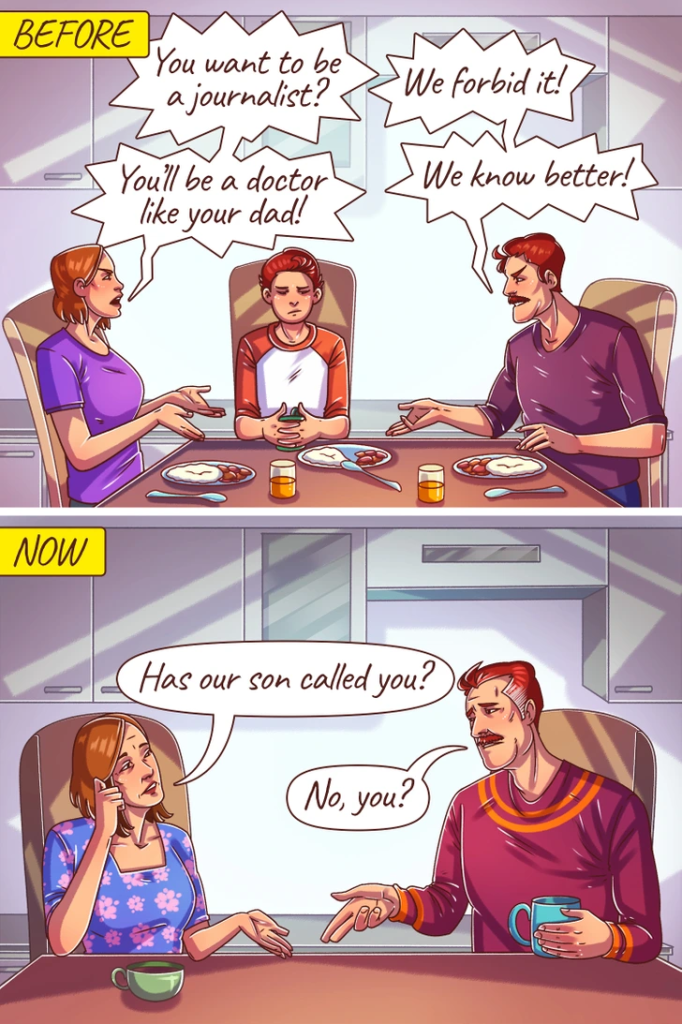
Parents who believe they have the right to decide everything—from career to marriage—fail to recognize their child’s independence. These parents often justify their control with, “Because I said so.” But children raised this way struggle to set boundaries, trust their own judgment, and live authentic lives.
12. Refusing to Praise Out of Fear of “Spoiling”
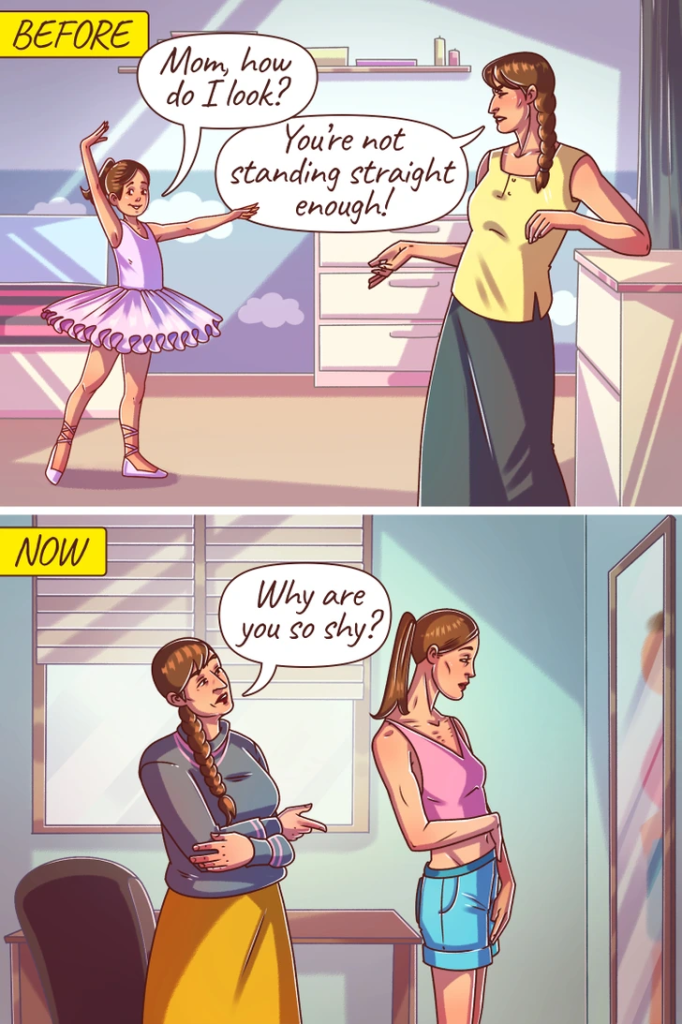
Some parents think praise makes kids lazy. So instead of encouragement, they offer constant correction. Over time, this builds insecurity. Kids raised with impossibly high standards and little affirmation often grow into adults who second-guess everything they do—and never feel “good enough.”
13. Offering Advice Instead of Empathy

When a child opens up about a problem, many parents rush to teach, correct, or say “I told you so.” But often, what kids need most is to be heard. They want connection, not a lecture. A child who feels judged will eventually stop sharing their struggles.
14. Creating an Over-Scheduled Childhood

Packing every hour with lessons, sports, and homework might look like good parenting, but it can leave children burnt out and joyless. They need downtime—moments to daydream, play, and just be. That space fosters imagination, independence, and emotional balance.
15. Forgetting That Words Leave Lasting Imprints
Even small comments can leave deep marks on a growing child. Words like “You always mess up” or “You’ll never be like your brother” may seem harmless in the moment—but they echo for years. Choosing your words with care helps build confidence, not damage it.
Conclusion: Being Present Matters More Than Being Perfect
There’s no such thing as a flawless parent—but there is such a thing as a mindful one. What kids need most isn’t perfection. They need love without conditions, support without control, and honesty without judgment. The good news? It’s never too late to adjust, reflect, and grow alongside your child